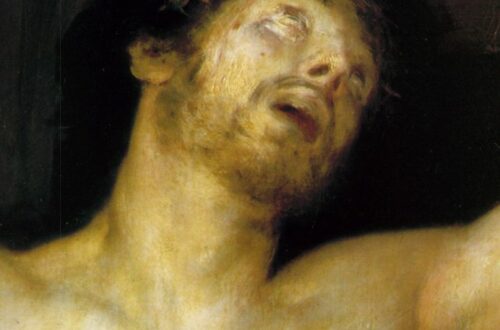When most people get close to people of power and influence, they feel something. I’m not entirely sure what it is, but the best answer I can come up with is that powerful people are compelling because their power promotes our status. The closer we are to them, the higher our status is.
Let’s start with the status seekers.
The status seekers: (20-24)
Then the mother of the sons of Zebedee came up to him with her sons (James and John), and kneeling before him she asked him for something. And he said to her, “What do you want?”
She said to him, “Say that these two sons of mine are to sit, one at your right hand and one at your left, in your kingdom.”
Jesus answered, “You do not know what you are asking. Are you able to drink the cup (a metaphor for experiencing suffering) that I am to drink?”
They said to him, “We are able.”
He said to them, “You will drink my cup (James is killed by Herod Agrippa I, but John was only banished), but to sit at my right hand and at my left is not mine to grant, but it is for those for whom it has been prepared by my Father.”
And when the ten heard it, they were indignant at the two brothers (looking for status).
The mother’s concern is for the the status of her sons, their proximity to the king. One might complain that they were already close to the king. They are two of the twelve. What more could they want? But status seeking is unending – you are never close enough. This is why there is so much jostling for power. Even when you are in the top 1%, you are not high enough!
James and John display the loyalty that would warrant their statues. They commit themselves to serve the king even if it means suffering. The other disciples think they are just as deserving. They are filled with jealousy, indignant with James and John. Jesus tells them that they will indeed get to share his sufferings. But he tells them that status in the kingdom is determined by the will of the Father not by Jesus. Suffering will come, but reward is not determined by the valor of his followers but the generosity of the Father.
Hold that in mind and then skip down to the second scene in the text, a scene which focuses on the request of those with no status.
The statusless (29-34)
And as they went out of Jericho, a great crowd followed him.
And behold, there were two blind men sitting by the roadside, and when they heard that Jesus was passing by, they cried out, “Lord, have mercy on us, Son of David!”
The crowd rebuked them, telling them to be silent,
but they cried out all the more, “Lord, have mercy on us, Son of David!”
And stopping, Jesus called them and said, “What do you want me to do for you?”
They said to him, “Lord, let our eyes be opened.”
And Jesus in pity touched their eyes, and immediately they recovered their sight and followed him.
So, what does Jesus have to teach the twelve?
The Teaching on Status (25-28)
But Jesus called them to him and said,
“You know that the rulers of the Gentiles exercise lordship over them, and their great ones exercise authority over them. It shall not be so among you. But whoever would be great among you must be your servant, and whoever would be first among you must be your slave, even as the Son of Man came not to be served but to serve, and to give his life as a ransom for many.”
Jesus compares two kinds of rulers or ‘great ones’ – the Gentiles and the Messiah. The Romans bring their subjects into submission and exercise their power. They exercise Lordship (bring into submission) and exercise authority (wield power). They have great power and they use it. In contrast, the Messiah exercises his power to serve since to be a great one (in the kingdom) one must be a servant (one who executes the commands of someone else) and to be the first one (in the kingdom) one must be a slave (one who surrenders his own will to another). So the Messiah executes the command of another – he is going to submit to another’s authority even to death (if the will of the other is that he dies, he will die).
But the Lord was pleased
To crush Him, putting Him to grief;
If He would render Himself as a guilt offering,
He will see His offspring,
He will prolong His days,
And the good pleasure of the Lord will prosper in His hand.
As a result of the anguish of His soul,
He will see it and be satisfied;
By His knowledge the Righteous One,
My Servant, will justify the many,
As He will bear their iniquities.
Therefore, I will allot Him a portion with the great,
And He will divide the booty with the strong;
Because He poured out Himself to death,
And was numbered with the transgressors;
Yet He Himself bore the sin of many,
And interceded for the transgressors. (Is 53:10-12)
The Bible teaches that riches are said not to be able to redeem a brother (the costs are too high): “No man can by any means redeem his brother or give to God a ransom for him—For the redemption of his soul is costly” (Psalm 49:7-9). The ransom paid is what can free a person from bondage, but not merely human bondage to another, but bondage to sin: “our great God and Savior, Christ Jesus, who gave Himself for us to redeem us from every lawless deed, and to purify for Himself a people for His own possession, zealous for good deeds” (Titus 2:14)
So, we know that Jesus exhibits the qualities of the greatest in the kingdom – he is the suffering servant. But to whom does he submit? We know he submits to the will of the Father (25). The answer to this question is the toughest pill for his disciples to swallow:
The Statusless Messiah (17-19):
And as Jesus was going up to Jerusalem, he took the twelve disciples aside, and on the way he said to them,
“See, we are going up to Jerusalem. And the Son of Man will be delivered over to the chief priests and scribes, and they will condemn him to death and deliver him over to the Gentiles to be mocked and flogged and crucified, and he will be raised on the third day.”
To whom does Jesus submit? The answer is that Jesus will submit to his enemies: first, the Pharisees and scribes and then the Romans. The Romans will exercise their authority over the Messiah. Jesus describe his humiliation as a descent – he is delivered over to an authority who condemn him. Then he is delivered over to the enemy authority and they mock, flog and finally execute him as a criminal. If you had the power, at what point would you put a stop to it? Perhaps when the Romans have you? But Jesus goes all the way down to the bottom! Notice the irony of going to the place of power (Jerusalem) and instead of elevation to status, Jesus will experience elevation to statusless (on the cross dying the death of a criminal)
Jesus ends his prediction with something significant – he is again passive – he is raised on the third day. His greatness is predicated on his humiliation – he must first be brought low and only then raised.
Jesus gave up his status to the point of becoming lower than the blind beggars. He will die the death of a criminal. This is his greatness – his humiliation on the cross. The Lord is going to suffer at the hands of other authorities. His route to kingship goes through his submission to the Father and his submission to the Pharisees, Scribes, and Gentiles. His stoop must be as low as can be so that he might rescue those who are lowest (blind beggars and criminals).
This is his mission: he humbles himself so low that even the scum of the earth are on his level. This is his stoop for us. He who is greatest—the Lord—is also the one who bends the lowest for the sake of those he delivers.
The follower of Jesus should abandon the idea that the closer he is to the King, the more prestige he will enjoy. In fact, the opposite is true: the closer he gets the further down the rank he must be willing to go, for only those who humble themselves are raised. As Proverbs says, “before honor comes humility” (prov 15:33) and “Before destruction the heart of man is haughty, But humility goes before honor” (prov 18:12).
Some take this passage to be about service – you will be great in the kingdom if you serve others just like Jesus. But is that how we should take it? Though this is true – we should aspire to be servant-leaders, I’m not convinced this is the main point Matthew is making for a few reasons.
First, those Matthew chooses to highlight in the narrative are not servants (Jesus is the one who is doing the serving of everyone else). Rather, it is the lowly beggars who are highlighted. And we are like the beggars. We are the lowly ones to whom he stoops – the blind beggars who can only cry for mercy. We can’t even serve – we are the ones he serves.
Second, last week we looked at the preceding passage – the one about deeds. The rich man couldn’t do the deed requested, he couldn’t leave his wealth and follow. The disciples did achieve the deed, but Jesus tells them that their rewards have nothing to do with the deed, but everything to do with his grace. If this is still the point of today’s passage, then the point remains the same – only on admitting your status as statusless will you know the kingdom.
Third, it is not clear Jesus refers to anyone but himself when he talks about the greatest and the first. Who else but Jesus will be the greatest or first in the kingdom? He is not necessarily issuing a general point for the disciples (although service is what they will do in the church). Rather, his point is self-referential. He is the one who will serve; the disciples (like the blind men) will be the ones who are served. They can do nothing.
Here is the point: Humility, of the kind Jesus expects, is the kind of humility that allows him to wash your feet, cure your diseases, and have mercy on you. It is not only the humility to wash another’s feet – that is the humility of Jesus the servant king – it is the humility of the blind beggars who cry for mercy.
John Piper’s devotional was on topic this morning. Let me leave you with some of what he wrote:
“What is God looking for in the world? Assistants? No. The gospel is not a “help wanted” sign. Neither is the call to Christian service. God is not looking for people to work for him… He’s the great worker. He’s the one with broad, burden-bearing shoulders. He’s the strong one. And he is looking for ways to show it… What does God want from us? Not what we might expect. He rebukes Israel for bringing him so many sacrifices: “I will not accept a bull from your house. . . . For every beast of the forest is mine. . . . ‘If I were hungry, I would not tell you, for the world and its fullness are mine’” (Psalm 50:9–10, 12).
But isn’t there something we can give to God that won’t belittle him to the status of beneficiary? Yes. Our anxieties. Our needs. Our cries for power to do his will. It’s a command: “[Cast] all your anxieties on him” (1 Peter 5:7). God will gladly receive anything from us that shows our dependence and his all-sufficiency.
Christianity is fundamentally convalescence. Patients do not serve their physicians. They trust them for good prescriptions and therapy. The Sermon on the Mount is our Doctor’s therapeutic regimen, not our Employer’s job description… Workmen get no gifts. They get their due. Their wage. If we would have the gift of justification, we dare not work for it. God is the workman in this affair. And what he gets is the glory of being the benefactor of grace, not the beneficiary of service.”



